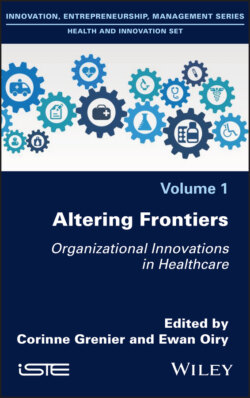Читать книгу Altering Frontiers - Группа авторов - Страница 20
1
Recognition of Patients’ Experiential Knowledge and Co-production of Care Knowledge with Patients and Citizens in the 21st Century 1.1. Introduction
ОглавлениеThe expectation of populations to participate in subjects that concern them is a key fact of the 21st century; the health field, a sensitive subject, is only one example. From the emergence in the first part of the 20th century, through the mobilization of citizens and the creation of popular epidemiological approaches (Brown 1987), to participatory research mainly in the environmental field (Houillet 2016), or more specifically in the field of health today, many communities of citizens have initiated practices that call for them to act, actions that have opened the way up to co-construction. It is a continuum organized from initial collaborations through the mobilization of citizens in the face of local intoxication due to industrial pollution, through the reaction of populations affected by the HIV/AIDS pandemic through the development of the Denver1 Principles, which constitute real collective, individual and interpersonal data.
This movement in favor of patient and user involvement, promoted for example in France by the law of 4 March 2002 on patients’ rights and on the quality of the health system, establishing a real framework for health democracy, is part of an international movement with major implications for contemporary health systems, partly demonstrated scientifically by the increase in the number of articles published over the last 20 years (Boote et al. 2002; Crocker et al. 2018). A wide variety of co-constructing tendencies have emerged from this change. These trends involve patients, users, citizens and all the stakeholders and institutions that make up health systems, according to different approaches (theoretical, conceptual and methodological).
Since Angela Coulter (2011) identified that 98% of the hours of care given to a person with chronic diabetes is provided by the patient and his or her family, these strategies have been of increasing interest to decision-makers in healthcare systems and their organizations. This English researcher has in fact defined the annual production of care in the context of the chronicization of patients.
Chronically ill people who, depending on their illness(s), spend an average of 5 to 10 hours a year in care with health professionals, while in that time, they and their loved ones spend up to 6,250 hours of care. This knowledge of patients has become a social fact (Durkheim 1988; Flora 2012; Jouet 2014). This chapter therefore deals with what is being organized as a consequence of this ongoing transformation in the organization of our societies as an extension of the changes largely shaped by the rise of science and more particularly of technoscientific approaches in the field of health (Jouet et al. 2010).
